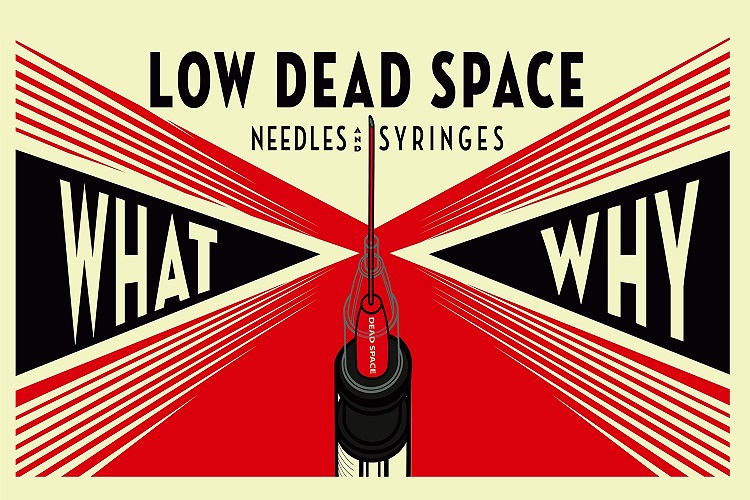15 December 2020
A joint ARC West and NIHR Health Protection Research Unit in Behavioural Science and Evaluation at University of Bristol (HPRU BSE) project to encourage people who inject drugs to switch to safer low dead space injecting equipment has been turned into a story, to demonstrate how research impact can be about more than papers. The story was developed to explain how the project drew on knowledge mobilisation, communication and service user involvement for greater impact.

Low dead space injecting equipment has less space between the needle and the plunger after injecting. Blood and drug remain in this space, so if needles are shared the risk of spreading blood borne viruses such as HIV and hepatitis C may be lower when there’s less space for blood to be left in the equipment.
The project team included:
- Bristol Drugs Project service users
- Deb Hussey, Assertive Engagement Worker at Bristol Drugs Project
- Jo Kesten, Senior Research Associate at NIHR ARC West and HPRU BSE
- Michael Linnell, Linnell Communications, a designer with extensive experience of creating health marketing materials for people who use recreational drugs
- Zoe Trinder-Widdess, Communications Manager at ARC West
The low dead space project began with research interviews with people who inject drugs to understand the barriers to using the new equipment. The team went on to develop posters, a booklet and an animation to promote the benefits and use of low dead space equipment, and broader harm reduction messages, for people who inject drugs, the needle and syringe programmes that support them, and policymakers.
Central to the project’s success was the involvement of Bristol Drugs Project, both in terms of Deb who was seconded to ARC West as a Knowledge Mobilisation Fellow, and the service users who shaped the materials. Find out more by downloading the full story (PDF).
Lesley Wye, NIHR Knowledge Mobilisation Fellow with the HPRU BSE, developed the story alongside Clare Thomas, Research Fellow in Health Services Research Implementation at ARC West and HPRU BSE.
Lesley said: “By developing this story we really wanted to shine a light on a project that doesn’t fit the usual academic mould. The low dead space project brings knowledge mobilisation to life. It shows the power of working across organisations and disciplines, including non-academic disciplines like design and communications. It’s a story with Bristol Drugs Project service users at its heart.”
Join Lesley, Deb, Jo and Zoe for a special webinar called ‘Impact in action – the low dead space syringe story’ on 15 June 2021 (postponed from 19 January 2021).
Further information
About the NIHR Health Protection Research Unit [HPRU] in Behavioural Science and Evaluation at the University of Bristol
The NIHR HPRU in Behavioural Science and Evaluation at University of Bristol is one of 14 HPRUs across England, part of a £58.7 million investment by the NIHR to protect the health of the nation.
The NIHR HPRU in Behavioural Science and Evaluation is a partnership between Public Health England and University of Bristol, in collaboration with MRC Biostatistics Research Unit at the University of Cambridge and University of the West of England.
Each NIHR HPRU undertakes high quality research that is used by PHE to keep the public safe from current and emerging public health threats.
About the NIHR
The National Institute for Health Research (NIHR) is the nation’s largest funder of health and care research. The NIHR:
- funds, supports and delivers high quality research that benefits the NHS, public health and social care
- engages and involves patients, carers and the public in order to improve the reach, quality and impact of research
- attracts, trains and supports the best researchers to tackle the complex health and care challenges of the future
- invests in world-class infrastructure and a skilled delivery workforce to translate discoveries into improved treatments and services
- partners with other public funders, charities and industry to maximise the value of research to patients and the economy.
The NIHR was established in 2006 to improve the health and wealth of the nation through research, and is funded by the Department of Health and Social Care. In addition to its national role, the NIHR supports applied health research for the direct and primary benefit of people in low- and middle-income countries, using UK aid from the UK government.